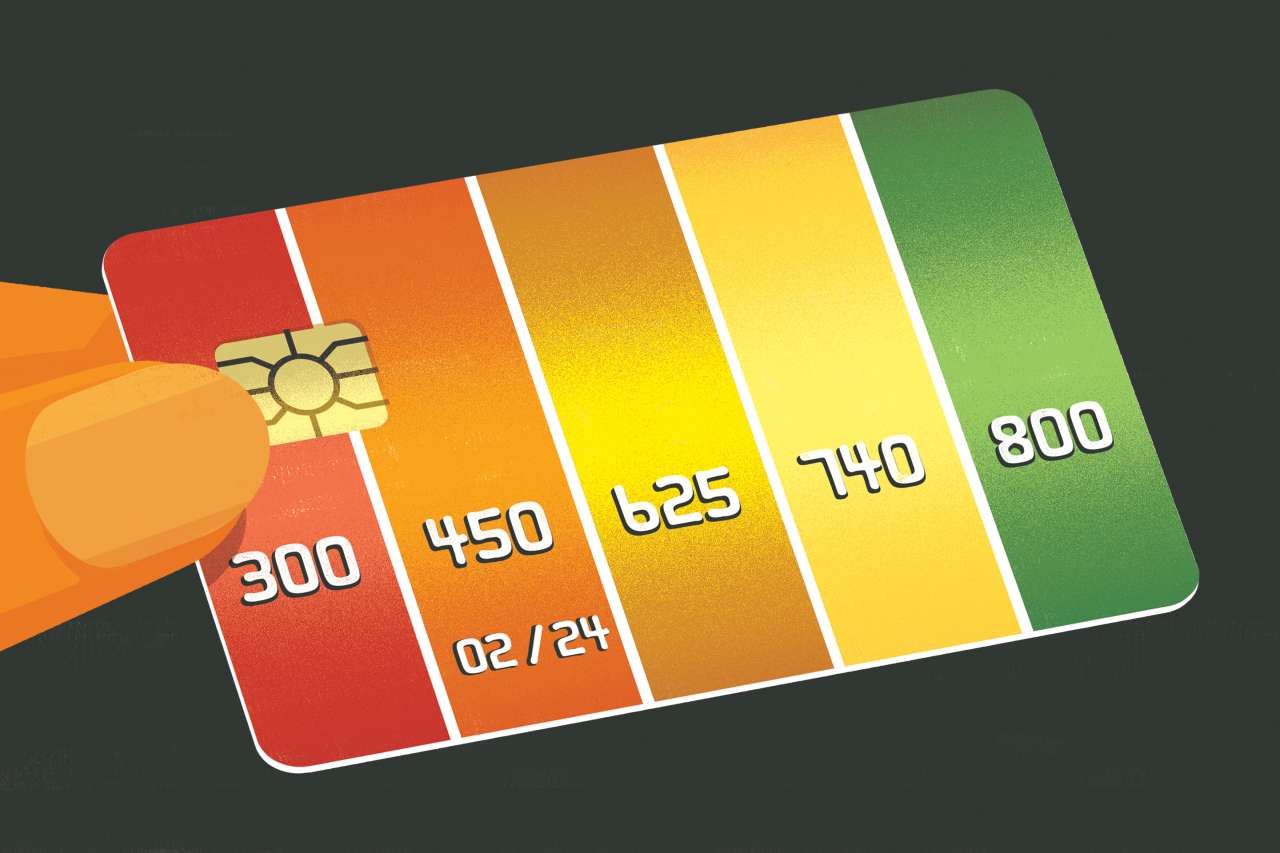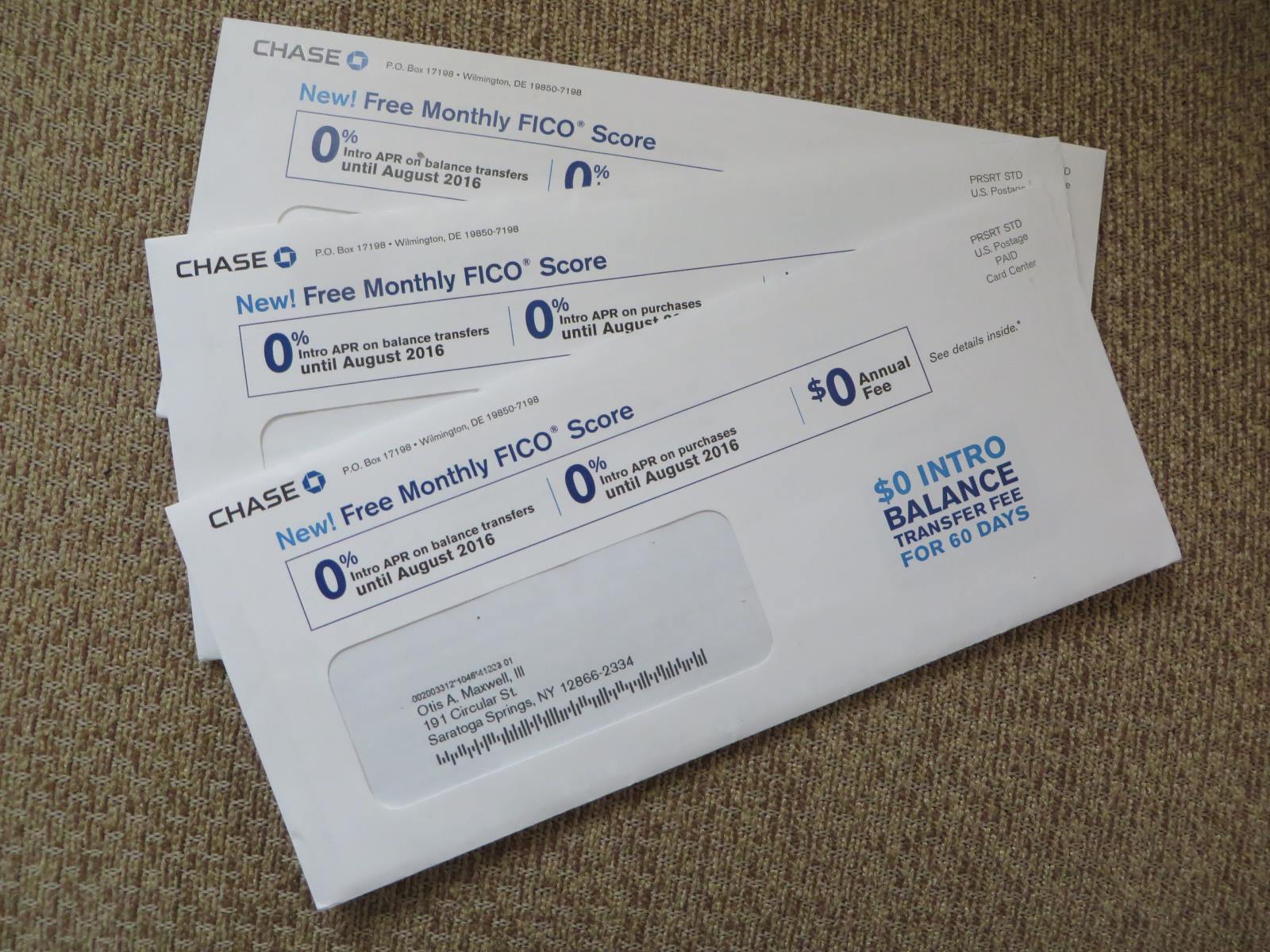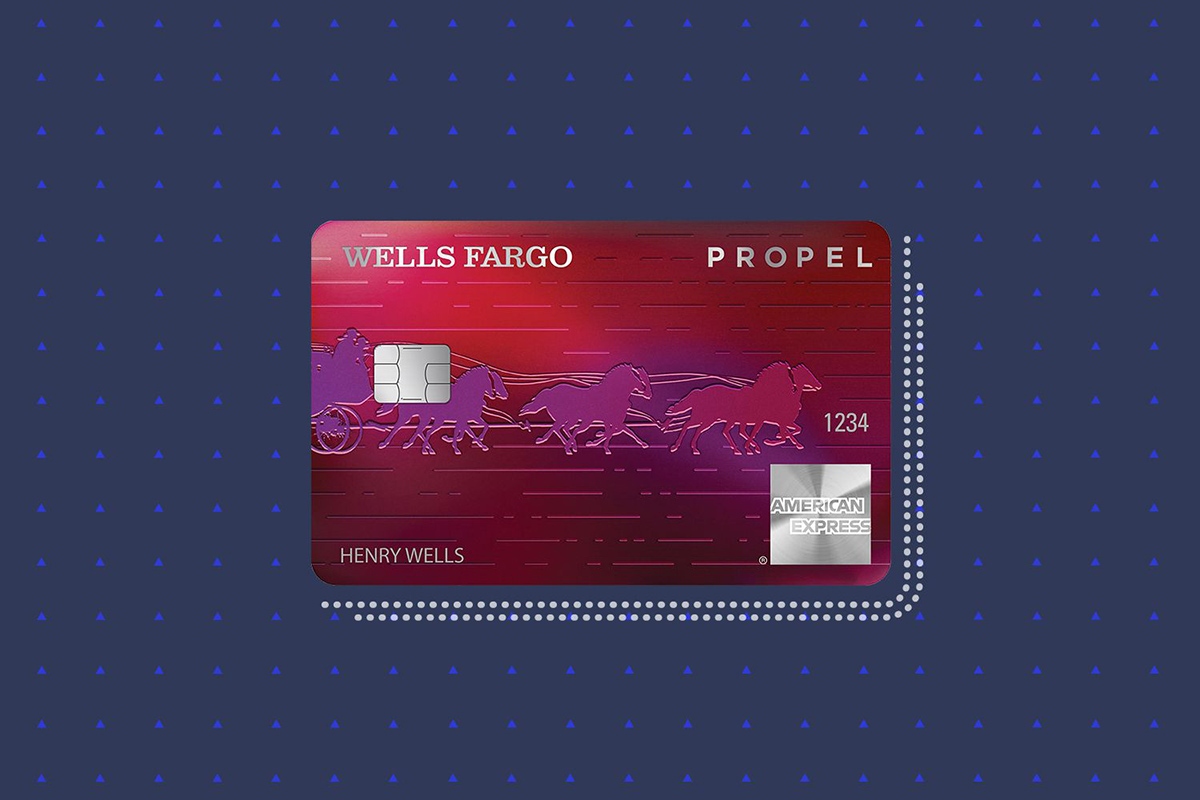Home>Finance>How Long Does It Take A Credit Card Payment To Go Through


Finance
How Long Does It Take A Credit Card Payment To Go Through
Published: November 7, 2023
Learn how long it takes for credit card payments to go through. Discover the timeframe and process involved in finance transactions.
(Many of the links in this article redirect to a specific reviewed product. Your purchase of these products through affiliate links helps to generate commission for LiveWell, at no extra cost. Learn more)
Table of Contents
Introduction
When making a credit card payment, whether it’s to pay off a balance, make a purchase, or transfer funds, the speed at which the payment goes through can vary. Understanding the credit card payment process and the factors that influence payment processing time is crucial for maintaining control over your finances.
In today’s fast-paced world, where convenience is key, it’s important to know how long it takes for a credit card payment to go through. Whether you’re making an online payment, conducting a transaction in person, or using a mobile payment app, the processing time can vary.
Delayed payment processing can lead to frustration and mismanagement of finances, causing unnecessary stress. On the other hand, understanding how to speed up the payment process can help you effectively manage your credit card accounts.
In this article, we will delve into the factors that affect credit card payment processing time and provide tips on how to speed up the process. Whether you’re a credit card holder looking to pay off a balance or a merchant waiting for funds to reach your account, this article will give you the insights you need to navigate the credit card payment process.
Understanding the Credit Card Payment Process
Before we dive into the factors that affect credit card payment processing time, let’s first understand how the process works. When you make a credit card payment, whether it’s for a purchase or to pay off a balance, there are several steps involved:
- Authorization: When you initiate a credit card payment, the merchant or payment processor sends a request for authorization to your credit card issuer. The issuer checks if the account is valid, if there are sufficient funds available, and if the transaction meets any security criteria.
- Clearing: Once the transaction is authorized, the payment details are sent for clearing. During this stage, the funds are transferred from your credit card account to the merchant’s account.
- Settlement: The final step is settlement, where the merchant receives the funds from the clearing process. This typically happens within a few business days, depending on the payment method and processing time.
It’s important to note that credit card payment processing time can vary depending on the payment method used, the merchant’s processing capabilities, and external factors such as weekends or holidays. Understanding these factors can help you anticipate how long it will take for a credit card payment to go through.
In the next sections, we will explore the various factors that can influence the processing time of credit card payments, whether you’re making an online payment, conducting a transaction in person, or using a mobile payment app.
Factors Affecting Credit Card Payment Processing Time
Several factors can influence the processing time of credit card payments. Understanding these factors can help you anticipate how long it will take for your payment to go through. Here are some key factors:
- Payment Method: The payment method you choose can affect the processing time. Online payments generally have a shorter processing time compared to in-person payments, as the transaction can be processed instantly.
- Merchant’s Processing Capabilities: The merchant’s processing capabilities play a role in the payment processing time. Some merchants may have faster systems or use payment processors that expedite the payment process, resulting in quicker transaction processing.
- Weekends and Holidays: The timing of your credit card payment can impact the processing time. Payments made on weekends or during holidays may experience delays due to reduced business hours or banking system downtimes.
- Credit Card Issuer: The policies and processing times of your credit card issuer can also affect payment processing. Some credit card issuers may have faster payment processing systems in place, resulting in shorter processing times.
- Transaction Verification: Certain transactions may require additional verification, such as large purchases or transactions in foreign countries. This verification process can extend the processing time of the payment.
- Network Congestion: During peak periods, such as holiday shopping seasons, heavy network congestion can slow down payment processing. This can result in longer processing times for credit card payments.
It’s important to keep these factors in mind and consider them when making credit card payments. While some factors are beyond your control, understanding how they can influence payment processing time can help you plan and manage your finances more effectively.
Online Payments
Online payments have become increasingly popular due to their convenience and accessibility. Whether you’re making a purchase from an online retailer or paying your credit card bill through your credit card issuer’s website, online payments offer a quick and efficient way to process transactions. Here’s what you need to know about the processing time of online credit card payments:
1. Real-time Processing: Online payments are typically processed in real-time, meaning the transaction is authorized and settled immediately. This allows for instant confirmation and ensures that the funds are deducted from your credit card account promptly.
2. Payment Gateways: Online merchants often use payment gateways to securely process credit card payments. These payment gateways facilitate seamless communication between the merchant, credit card issuer, and payment processor, enabling fast and secure transaction processing.
3. Merchant Policies: While online payments are generally processed quickly, the merchant’s payment processing policies may impact the overall processing time. Some merchants may have a delay in processing payments due to their internal procedures or verification processes.
4. Business Hours: The timing of your online payment can also affect the processing time. Payments made during business hours are likely to be processed more quickly than those made outside of business hours. Additionally, payments made on weekends or holidays may experience a slight delay due to reduced staffing or limited banking hours.
5. Third-Party Payment Processors: In some cases, online payments may be processed through third-party payment processors, such as PayPal or Stripe. The processing time can vary depending on the specific payment processor utilized by the merchant.
Overall, online credit card payments are known for their speed and efficiency. The real-time processing nature of online payments ensures that funds are deducted from your credit card account promptly, allowing for quick and seamless transactions.
In-Person Payments
While online payments have gained popularity, in-person payments are still a common method for conducting transactions. Whether you’re shopping at a physical store, dining at a restaurant, or paying for services in person, here’s what you need to know about the processing time of in-person credit card payments:
1. Point-of-Sale (POS) Systems: In-person credit card payments are typically processed through point-of-sale (POS) systems. When you present your credit card for payment, the merchant will swipe, dip, or tap your card on the POS terminal to initiate the payment process.
2. Authorization and Clearing: Similar to online payments, in-person credit card payments go through the authorization and clearing process. The authorization ensures that your credit card is valid and has sufficient funds, while the clearing process transfers the funds from your credit card account to the merchant’s account.
3. Payment Network: In-person payments rely on a payment network to facilitate the transaction. The payment network acts as an intermediary between the merchant, credit card issuer, and payment processor, ensuring a seamless and secure transfer of funds.
4. Merchant’s Processing Capabilities: The processing capabilities of the merchant can affect the overall processing time of in-person credit card payments. Some merchants may have faster POS systems or use advanced payment processors that expedite the payment process, resulting in quicker transaction processing.
5. Business Hours: In-person payments are subject to the business hours of the merchant. Payments made during regular business hours are likely to be processed more quickly compared to payments made outside of business hours.
6. Offline Mode: In some cases, if the POS terminal experiences technical issues or loss of connectivity, the payment may be processed in an offline mode. When the connection is restored, the transaction is cleared and settled, which may result in a slight delay in payment processing.
In-person credit card payments generally have a slightly longer processing time compared to online payments. This is due to the additional steps involved, such as physically presenting the card, waiting for authorization, and settling the transaction. However, advancements in technology have significantly reduced the processing time, making in-person payments quick and efficient.
Mobile Payments
With the increasing use of smartphones and mobile apps, mobile payments have become a popular choice for consumers. Mobile payment apps such as Apple Pay, Google Pay, Samsung Pay, and various banking apps allow users to make payments using their smartphones. Here’s what you need to know about the processing time of mobile credit card payments:
1. Near Field Communication (NFC): Mobile payments utilize near field communication (NFC) technology, which allows for contactless payments. By simply tapping or bringing your smartphone close to a payment terminal that supports NFC, you can initiate the payment process.
2. Instant Authorization: Mobile credit card payments are usually authorized instantly. The payment app securely transmits the payment details to the credit card issuer, which verifies the transaction in real-time, providing instant authorization for the payment.
3. Secure Tokenization: Mobile payment apps use secure tokenization to protect your payment information. Instead of transmitting your actual credit card details, a unique token is generated for each transaction, ensuring that your sensitive data remains protected.
4. Quick and Convenient: The speed and convenience of mobile payments make them an attractive option. With just a few taps on your smartphone, you can complete a transaction within seconds, eliminating the need to carry physical credit cards or cash.
5. Business Hours: Similar to in-person payments, the processing time of mobile payments can be influenced by the merchant’s business hours. Payments made during the merchant’s operating hours are likely to be processed more quickly compared to payments made outside of business hours.
6. Third-Party Payment Processors: In some cases, mobile payments may rely on third-party payment processors or mobile wallet platforms. The processing time can vary depending on the specific platform used and its integration with the merchant’s payment system.
Mobile credit card payments are known for their speed and convenience, allowing users to make quick and secure transactions with their smartphones. Whether you’re shopping at a physical store, dining out, or making online purchases, mobile payments provide a seamless and efficient payment experience.
Delayed Credit Card Payment Processing
While credit card payments are typically processed in a timely manner, there are instances where delays can occur. Understanding the potential causes of delayed credit card payment processing can help you navigate these situations effectively. Here are a few common reasons for delayed payment processing:
- Payment Posting Time: Some credit card issuers may require a certain amount of time to post payments to your account. This means that even if you make a payment on time, it may take a few days for the payment to reflect on your credit card statement.
- Weekends and Holidays: Payments made on weekends or holidays may experience delays due to reduced business hours or limited banking operations. In such cases, payments may not be processed until the next business day.
- Technical Glitches: Occasionally, technical glitches or system malfunctions can disrupt payment processing. This can result in delays as the issue is resolved and payments are processed manually.
- Insufficient Funds: If there are insufficient funds in your bank account when the payment is processed, it could cause a delay in the payment going through. In such situations, the credit card issuer may attempt to process the payment again or contact you for resolution.
- Payment Verification: Certain transactions or payments may require additional verification, especially if they are considered high-risk or outside of your usual spending patterns. This verification process can cause a delay in payment processing while the necessary checks are conducted.
- Network Congestion: During peak periods or times of heavy network congestion, payment processing may slow down. This can occur during busy shopping seasons, promotional periods, or large-scale sales events.
If you experience a delay in credit card payment processing, it is important to stay proactive. Keep track of your payment due dates, monitor your bank account for sufficient funds, and contact your credit card issuer if you notice any issues or delays. This will help ensure that your payments are processed as efficiently as possible.
Remember, delays in credit card payment processing can happen occasionally, but by staying informed and taking appropriate action, you can minimize their impact on your financial management.
How to Speed Up Credit Card Payment Processing
While credit card payment processing times can vary depending on various factors, there are steps you can take to expedite the process. Here are some tips to help you speed up credit card payment processing:
- Pay Online: Making payments online is often the fastest method. Online payments are typically processed in real-time, ensuring immediate authorization and settlement of the transaction.
- Confirm Payment Cut-Off Times: Credit card issuers and payment processors may have specific cut-off times for processing payments. Make sure to check these cut-off times and schedule your payments accordingly to ensure they are processed on the same day.
- Utilize Electronic Funds Transfer (EFT): If possible, consider setting up an electronic funds transfer with your credit card issuer. This allows for automatic recurring payments, ensuring that your bills are paid on time without any delays.
- Pay Early: To avoid any potential delays, make it a habit to pay your credit card bill a few days before the due date. This allows ample time for the payment to be processed and posted to your account.
- Provide Accurate Payment Information: Double-check that you have entered the correct payment information, such as the credit card number and expiration date, to avoid any processing errors or delays.
- Minimize Potential Verification Issues: To expedite payment processing, try to make payments within your usual spending patterns and avoid making large, out-of-the-ordinary transactions, which may trigger additional verification steps.
- Follow Up if There Are Delays: If you notice a delay in payment processing or suspect any issues, reach out to your credit card issuer promptly. They can offer insights, investigate the situation, and provide guidance on how to resolve the matter effectively.
- Consider Expedited Payment Options: Some credit card issuers offer expedited payment options for an additional fee. If you need a payment to be processed urgently, this might be a viable solution.
While these tips can help speed up credit card payment processing, it’s essential to remember that certain factors, such as weekends, holidays, and the payment processing policies of your credit card issuer, are beyond your control. By staying proactive, being mindful of payment cut-off times, and following up on any issues, you can ensure that your credit card payments are processed as swiftly as possible.
Remember, responsible credit card management includes timely payments, which can have a positive impact on your credit score and overall financial well-being.
Conclusion
Understanding the credit card payment process and the factors that affect payment processing time is essential for managing your finances effectively. Whether you’re making online payments, conducting transactions in person, or using mobile payment apps, being aware of the nuances can help you navigate the payment process more confidently.
Online payments offer convenience and real-time processing, ensuring quick and efficient transactions. In-person payments require physical interaction with point-of-sale systems, but advancements in technology have significantly reduced processing times. Mobile payments have emerged as a popular choice, allowing for contactless transactions with just a tap of your smartphone.
Despite the general efficiency of payment processing, delays can occur due to various factors such as payment posting times, weekends, holidays, technical glitches, or verification processes. However, by staying proactive, paying attention to cut-off times, and providing accurate payment information, you can minimize the impact of these delays.
To speed up credit card payment processing, consider making online payments, paying early, utilizing electronic funds transfer, and minimizing potential verification issues. It is also important to reach out to your credit card issuer if you notice any delays or issues to address them promptly.
By following these tips and staying informed, you can ensure that your credit card payments are processed swiftly and efficiently, enabling you to maintain control over your finances and avoid unnecessary stress. Remember, responsible credit card management includes timely payments, which can positively impact your credit score and financial well-being.














